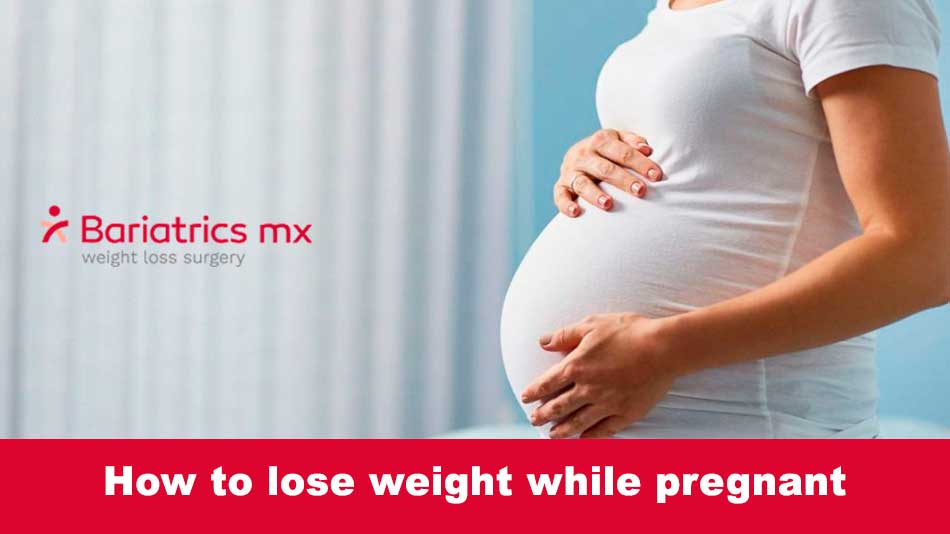Pregnancy is a unique and transformative journey, but it can also bring questions about weight management. Many women wonder if it’s safe or even possible to lose weight during pregnancy without risking the health of their baby. The answer isn’t straightforward. While intentional weight loss is often discouraged, there are safe ways to manage your weight and focus on maintaining a healthy lifestyle. This guide will explore practical, evidence based strategies for achieving this balance.
Is losing weight during pregnancy safe?
The safety of losing weight during pregnancy depends on your unique circumstances. For women with obesity or significant weight-related health concerns, modest weight management under strict medical supervision can be beneficial. However, for women with a healthy pre-pregnancy weight, the focus should typically be on gaining weight gradually and healthily rather than losing it.
Understanding your weight goals during pregnancy
The amount of weight you should gain depends on your pre-pregnancy weight and BMI:
- Underweight (BMI < 18.5): 28-40 lbs gain recommended.
- Normal weight (BMI 18.5–24.9): 25-35 lbs gain recommended.
- Overweight (BMI 25–29.9): 15-25 lbs gain recommended.
- Obese (BMI ≥ 30): 11-20 lbs gain recommended.
These guidelines help ensure that your baby receives adequate nutrients while minimizing risks associated with excessive weight gain, such as gestational diabetes or preeclampsia.
Risks of excessive weight gain
Gaining too much weight during pregnancy can lead to complications for both mother and baby. These include:
- Increased likelihood of a cesarean delivery.
- Postpartum weight retention, increasing future health risks.
- Higher chances of delivering a larger baby, which may lead to birth complications.
When is weight loss acceptable?
For women with a high BMI, a slight weight reduction during the early stages of pregnancy may sometimes occur naturally as the body adjusts. However, this should always be monitored by healthcare professionals to ensure the baby’s health is not compromised.
What a balanced pregnancy diet looks like
Nutrition plays a pivotal role in maintaining a healthy weight during pregnancy. Instead of focusing on caloric restriction, the emphasis should be on quality and balance.
Key principles of a pregnancy diet
- Prioritize whole, nutrient-dense foods:
- Proteins: Eggs, lean chicken, lentils, tofu, and fish (low in mercury).
- Healthy fats: Avocado, olive oil, nuts, and seeds.
- Complex carbohydrates: Quinoa, whole-grain bread, and starchy vegetables like sweet potatoes.
- Limit empty calories: Avoid sugary drinks, processed snacks, and fast food.
- Don’t skip meals: Eating smaller, frequent meals can stabilize blood sugar levels and prevent overeating.
Portion control tips
Pregnancy doesn’t mean eating twice as much. Misconceptions about “eating for two” can lead to excessive caloric intake. Instead, adopt mindful eating habits such as:
- Eating slowly and stopping when you feel full.
- Measuring portions to avoid over-serving.
- Using smaller plates for visual cues.
Exercises to support healthy weight during pregnancy
Exercise offers numerous benefits for expectant mothers, from improving mood to preparing the body for labor. However, the type and intensity of exercise should align with your fitness level and pregnancy stage.
Recommended physical activities
- Walking: A simple way to keep active and improve circulation.
- Swimming: Gentle on joints and helps alleviate pregnancy-related aches.
- Prenatal yoga: Combines stretching, relaxation, and breathing techniques to prepare for delivery.
- Low-impact strength training: Helps maintain muscle tone and supports the body as it adapts to pregnancy changes.
Safety tips for exercising while pregnant
- Always warm up and cool down to prevent injuries.
- Stay hydrated and avoid overheating.
- Avoid high-risk activities such as contact sports or exercises with a high risk of falling.
How much exercise is enough?
Aim for at least 150 minutes of moderate aerobic activity per week, spread out over several days. This could mean 30 minutes of walking five times a week, or even shorter sessions if that feels more manageable.
Debunking common myths about pregnancy and weight
Pregnancy often comes with well-meaning but misguided advice. Let’s separate fact from fiction:
Myth 1: “You shouldn’t exercise while pregnant.”
Fact: Exercise, when done safely, is beneficial and recommended by most doctors. It can ease pregnancy discomfort and improve your mood.
Myth 2: “It’s normal to gain as much weight as you want during pregnancy.”
Fact: Gaining excessive weight can lead to complications for both mother and baby. Controlled, gradual weight gain is key.
Myth 3: “Dieting during pregnancy is dangerous.”
Fact: While strict dieting is discouraged, focusing on nutrient-dense foods and reducing junk food intake is healthy and safe.
Recognizing when to seek medical advice
Managing weight during pregnancy isn’t always straightforward. Certain signs may indicate complications that require medical attention, including:
- Sudden weight loss or gain outside of normal ranges.
- Extreme fatigue or dizziness during activities.
- Unusual swelling or signs of preeclampsia (severe headaches, vision changes).
Collaborate with your healthcare provider
Regular prenatal visits allow your doctor to monitor your weight, overall health, and baby’s growth. Open communication ensures you’re on the right track.
Strategies for sustainable weight management during pregnancy
Maintaining a healthy weight during pregnancy isn’t just about numbers on a scale it’s about overall well-being.
- Meal prepping for successTaking time to plan and prepare meals can prevent unhealthy snacking and reduce stress.
- Prioritize hydrationDrink water throughout the day to stay hydrated and reduce unnecessary calorie intake, as thirst can sometimes be mistaken for hunger.
- Get supportJoin prenatal exercise classes or connect with other expectant mothers to stay motivated.
- Track progress thoughtfullyAvoid obsessing over the scale. Instead, focus on healthy habits and how they make you feel.
The benefits of focusing on health, not weight loss
Shifting the focus from weight loss to overall health can lead to better outcomes for both you and your baby. Some key benefits include:
- Reduced risk of gestational diabetes and preeclampsia.
- Easier postpartum recovery.
- Improved energy levels throughout pregnancy.
Final thoughts
Weight management during pregnancy requires a thoughtful and balanced approach. By prioritizing nutrient-dense foods, staying active, and consulting with healthcare professionals, you can support both your health and your baby’s development. Remember, every pregnancy is unique, so personalized guidance is essential.






